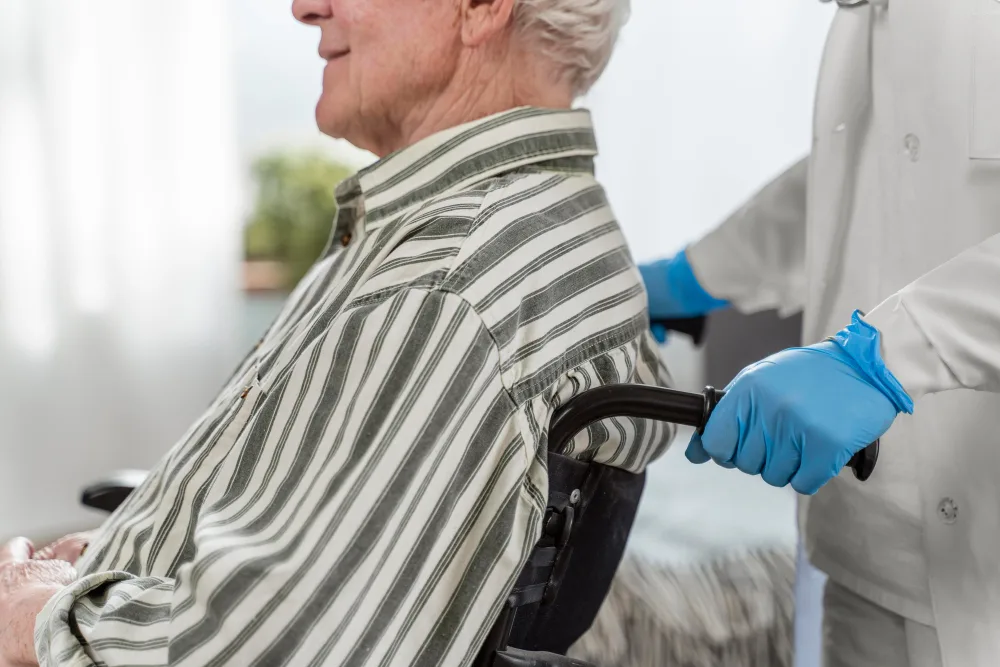
Why Choosing the Right Geriatric Clinic Matters?
July 8, 2025
Understanding the Root Causes of Epilepsy in Seniors
August 27, 2025As people age, they face unique health challenges that demand specialized care. For elderly Parkinson’s patients, this becomes even more critical. Parkinson’s disease is a progressive neurological disorder that primarily affects movement. When combined with age-related health concerns, the complexity of managing Parkinson’s increases significantly. That’s where geriatricians, doctors who specialize in the healthcare of older adults, are essential.
Geriatric care doesn’t just focus on treating the disease; it ensures that the person is cared for holistically, improving quality of life, independence, and comfort in the long run.
Understanding Parkinson’s Disease in the Elderly
Parkinson’s disease (PD) is a neurodegenerative disorder that results from the loss of dopamine-producing neurons in the brain. Dopamine is important for controlling movement, which is why Parkinson’s patients often experience symptoms like:
- Tremors
- Slowness of movement (bradykinesia)
- Muscle rigidity
- Impaired balance and coordination
In elderly individuals, Parkinson’s often presents additional complications. Natural ageing processes can mask or amplify symptoms, making diagnosis and management more complex. Cognitive decline, weakness, medication sensitivity, and multiple coexisting health conditions make elderly people more vulnerable.
This is precisely why they need the focused expertise of a geriatrician.
The Role of Geriatricians in Parkinson’s Care
1. Comprehensive Assessment and Diagnosis
Geriatricians are trained to evaluate older patients through a wide lens. Unlike standard physicians, they look at more than just the disease; they assess the entire physical, emotional, cognitive, and social picture. This is especially important for Parkinson’s patients, who may already be dealing with multiple chronic conditions like diabetes, arthritis, dementia or heart disease.
A geriatrician’s approach ensures that:
- Cognitive decline is detected early
- Mental health issues such as depression or anxiety are addressed
- Medication side effects are monitored across all treatments
- Risk factors like falls, malnutrition, or isolation are minimized
2. Medication Management
People with Parkinson’s usually need a specific set of medicines to help control their symptoms. But elderly bodies process medications differently. Changes in liver and kidney function, combined with other prescriptions, can increase the risk of medication interactions or side effects such as hallucinations or confusion.
A geriatrician carefully monitors these medications, ensuring they are effective without compromising the patient’s safety. They also evaluate non-motor symptoms, such as constipation, sleep disorders, or bladder issues, that often go untreated in routine Parkinson’s care.
3. Fall Prevention and Mobility Support
One of the most dangerous complications of Parkinson’s in older adults is the risk of falling. Falls can lead to fractures, hospitalization, and even long-term disability. A geriatrician collaborates with physiotherapists to develop a personalized fall-prevention strategy for each patient.
This includes:
- Strength and balance training
- Home environment assessments
- Use of walking aids or support systems
- Safe mobility exercises
By focusing on proactive mobility management, geriatricians help Parkinson’s patients retain their independence longer.
4. Mental and Emotional Health Support
Elderly Parkinson’s patients are at high risk for dementia, hallucinations, and mood disorders. While neurologists can address the root causes, geriatricians bring an added layer of mental and emotional care. They provide:
- Routine cognitive assessments
- Support for caregivers in managing behavioural changes
- Coordination with psychologists or neurologists for custom treatment
- Holistic strategies for improving memory and mental well-being
Many families turn to Google to search for a “geriatrician near me” when facing such challenges, because they understand that mental health is just as important as physical function.
5. Care Coordination and Support Systems
Parkinson’s is not a condition managed by a single doctor; it needs a team. Geriatricians often serve as coordinators between neurologists, physiotherapists, nutritionists, social workers, and caregivers. This ensures:
- Smooth communication between specialists
- Custom rehabilitation plans
- Support for caregivers in navigating insurance, long-term care, and respite options
- Regular monitoring to adjust treatment as the disease progresses
This approach is vital, especially in advanced stages of Parkinson’s where symptoms become more severe and unpredictable.
Why a Specialized Geriatric Approach Matters
Treating Parkinson’s in younger adults and older adults is considerably different. Older patients:
- Often have more fragile health
- Face greater risks from medication side effects
- May have cognitive impairments that complicate care
- Might be more isolated or dependent on others
Without the slight understanding that geriatricians bring, many of these aspects go unaddressed. Standard care may miss the emotional burden on the patient or fail to recognize slight signs of worsening health. In contrast, geriatric expertise provides a patient-centred approach that prioritizes functionality, independence, and dignity.
Parkinson’s disease is a lifelong journey, and when it affects elderly individuals, life becomes even more complex. While neurologists provide necessary treatment for the disease itself, geriatricians bring a much-needed layer of comprehensive care. Their expertise ensures that elderly Parkinson’s patients are not just treated, but truly supported.
From personalized medication management to fall prevention and emotional support, geriatricians help these patients maintain a higher quality of life for as long as possible. If you’re caring for an older adult with Parkinson’s, consulting a specialized geriatrician could be one of the most crucial steps in their care journey.

